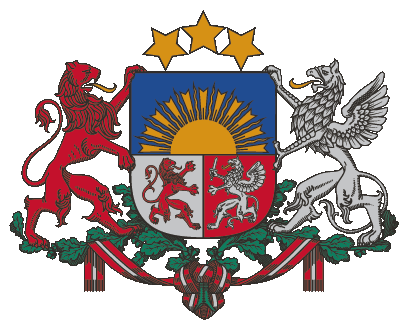The public debate about the teaching function of school principals continues. The State Audit Office of Latvia explains that the audit assessed the effectiveness of the teacher remuneration system in local and regional governments in 2018 which resulted in a call for ensuring fair payment for teachers for overtime in the same manner as the Labour Law provided for any employee. This issue is especially important in conditions of a shortage of human resources.
“Our focus was on compliance with labour rights, that is, whether teachers’ working hours were recorded correctly and whether overtime work was paid appropriately,” stated Mr Oskars Erdmanis, Council Member of the State Audit Office of Latvia.
The audit highlighted irregularities in the teacher remuneration system
In September 2018, the State Audit Office of Latvia published audit report “How is the work of teachers organized and paid in Latvia?” in which it pointed out irregularities and injustice in teacher remuneration to the Ministry of Education and Science. The ministry responsible for education has been trying for a long time, with the resources at its disposal, to create a remuneration system that is based on the personal contribution and work intensity of teachers.
“At the municipal level, teacher remuneration system affected more than 660 schools and 28,000 teachers at that time, and the State Audit Office of Latvia assessed the Ministry’s achievements as insufficient by concluding that the teacher remuneration system should become simpler, more understandable and more transparent,” indicated Mr Oskars Erdmanis, Council Member of the State Audit Office of Latvia.
Legal framework places teachers in an unequal situation
The audit has found that the system of remuneration for teachers established in the country is not fully regulated in laws and regulations. Namely, it does not provide for a clear organization of work, accounting and fair payment of educators, administrative and support staff. This places teachers in an unreasonably disadvantageous situation compared to other employees by preventing them from receiving remuneration appropriate to the work performed, for example, a bonus for overtime when replacing an absent colleague.
Taking into account shortcomings in the regulation, local and regional governments also had problems specifying the accounting of working hours and appropriate overtime payment for teaching, administrative and support staff of educational institutions under their responsibility.
“When assessing the legal framework on the organization of work of educators in educational institutions, the auditors found a significant discrepancy. Hours worked in addition to the established working hours, for example, when replacing colleagues or conducting additional lessons, are not recognized as overtime,” explained Mr Oskars Erdmanis, Council Member of the State Audit Office of Latvia.
The State Audit Office of Latvia considers that the aforementioned work organization and payment procedures are less favourable for teachers compared to those employees to whom general labour law provisions regarding normal working hours, overtime work, its accounting and payment apply.
Deficiencies in teacher remuneration have remained unresolved for years
Already in 2018, the State Audit Office of Latvia recommended harmonizing the regulation of teacher remuneration with general labour law regulations and changing the target grant calculation period so that teachers received information about their pay in a timely manner. However, the Ministry of Education and Science has only begun addressing this issue recently.
The State Audit Office of Latvia has not provided the Ministry with a recommendation on the proportional distribution of administrative and teaching work of administrative staff, as the compliance audit format does not include such an assessment. “The State Audit Office of Latvia established that the developer of the laws and regulations had not determined a legitimate goal why restrictions on teaching workload should be set at all at that time yet,” explained Mr Oskars Erdmanis, Council Member of the State Audit Office of Latvia.
About the State Audit Office of Latvia
The State Audit Office of the Republic of Latvia is an independent, collegial supreme audit institution. The purpose of its activity is to find out whether the actions with the financial means and property of a public entity are legal, correct, useful and in line with public interests, as well as to provide recommendations for the elimination of discovered irregularities. The State Audit Office conducts audits in accordance with the International Standards of Supreme Audit Institutions of the International Organization of Supreme Audit Institutions INTOSAI (ISSAI), the recognition of which in Latvia is determined by the Auditor General. Upon discovering deficiencies, the State Audit Office of Latvia provides recommendations on resolving these issues and informs law enforcement authorities about any potential infringements of the law.
Additional information
Mr Aivis Majors
PR Specialist in Digital Content Development
of Communication Division
Ph: 23282284 | E-mail: Aivis.Majors@lrvk.gov.lv
